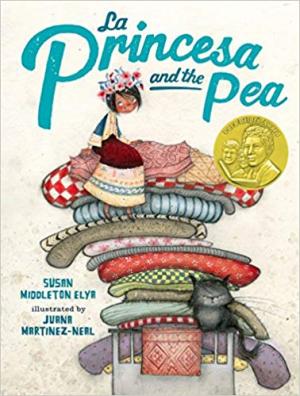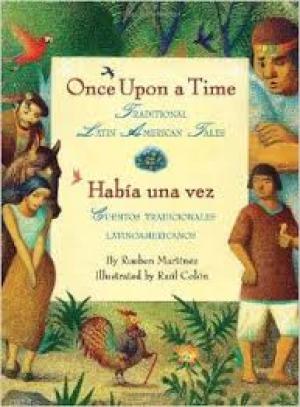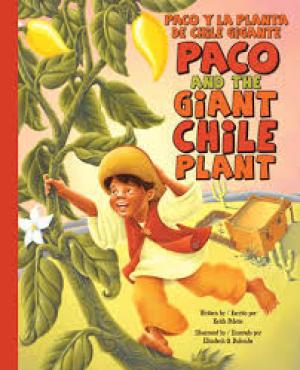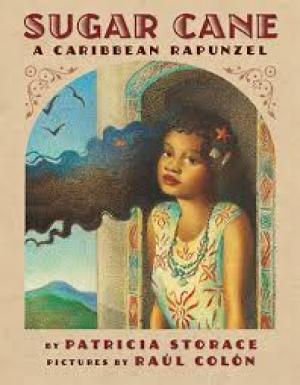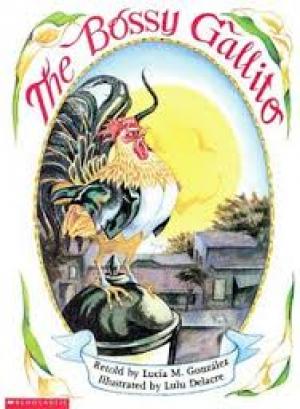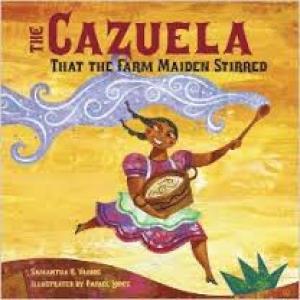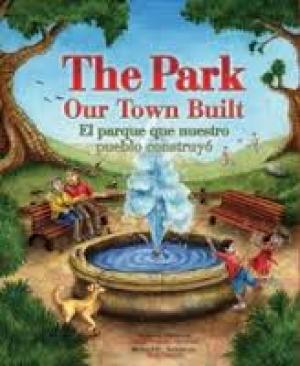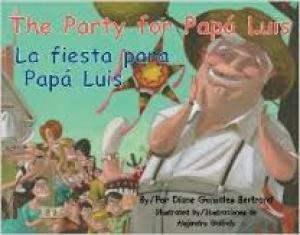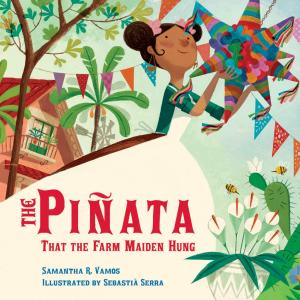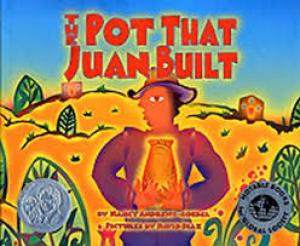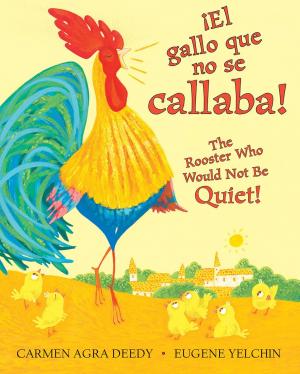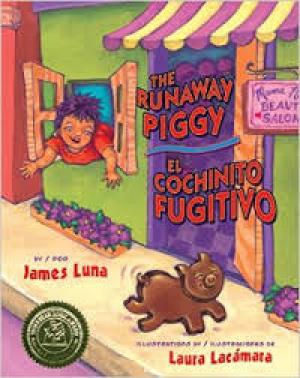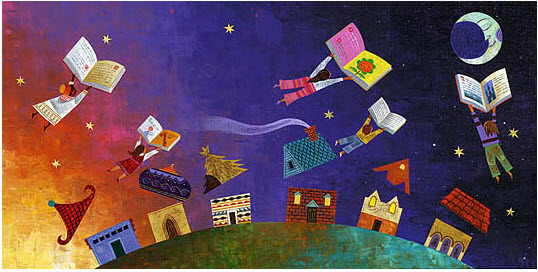Fairy Tales and Fables: Hispanic Heritage

Revisit these classic fairy tales and fables — retold with a Latino twist! From a Caribbean Rapunzel to numerous variations on "The House That Jack Built," young readers are sure to enjoy a fresh take on these favorites.
Colorín Colorado Book Finder
For more great titles organized by age and topic, see the Colorín Colorado Book Finder!
Agua, Agua, Agua
Crow knows where to find water amid rocks and how to get it even though it's below the reach of his beak. The predictable patterns and repetition of words in this simple retelling of one of Aesop's Fables invites participation. Bold illustrations use broad shapes and confident line in strong borders contained in a small format ideal for a new reader or to share on a lap.
Burro's Tortillas
Product Description: In this humorous Southwestern retelling of "The Little Red Hen," Burro finds it difficult to get any help from his friends as he diligently works to turn corn into tortillas. In addition to its Southwestern flavor and clever puns, the delightful story imparts an accurate picture of the traditional way that tortillas are made.
For lesson plans aligned to Burro's Tortillas, see our curriculum resources.
La Princesa and the Pea
The Princess and the Pea gets a fresh twist in this charming bilingual retelling, winner of the Pura Belpré Medal for Illustration. El príncipe knows this girl is the one for him, but, as usual, his mother doesn’t agree. The queen has a secret test in mind to see if this girl is really a princesa, but the prince might just have a sneaky plan, too. Readers will be enchanted by this Latino twist on the classic story, and captivated by the vibrant art inspired by the culture of Peru.
Once Upon a Time: Traditional Latin American Tales
Product Description: From the grateful rooster who cries "Cock-a-doodle-doo!" to the awesome spirit of the Mother of the Jungle, Once Upon a Time/Habia una vez celebrates seven traditional folktales and tells them in a colorful, fresh voice. In these magical adventures that are sure to delight, readers young and old will meet some of the world's most memorable heroes and charming tricksters.
Paco and the Giant Chile Plant
Product description: The Southwestern desert is the setting for this humorous variation on the classic fairy tale "Jack and the Beanstalk." This bilingual book is presented as embedded text with the story told mostly in English and a sprinkling of Spanish throughout. The dusty desert feel is captured in deep pastel colored illustrations.
Sugar Cane: A Caribbean Rapunzel
Product Description: Stolen away from her parents on her first birthday by island sorceress Madam Fate, beautiful Sugar Cane grows up in a tower overlooking the sea, her only consolation her love of music. Then one night, someone does hear her song, but could this young man with a gift for music break the spell of Madam Fate and help Sugar Cane set herself free? Patricia Storace's lyrical and poignant retelling of the Rapunzel tale in a Caribbean setting is perfectly matched with Raúl Colón's lush illustrations.
The Bossy Gallito: A Traditional Cuban Folktale
Travel with Bossy Rooster to his uncle's wedding. Of course the road is not entirely smooth in this cumulative, handsomely illustrated tale from Cuba — and that's when the fun begins!
The Cazuela That the Farm Maiden Stirred
Start with a farm maiden and a pot, invite some friends to help her, and before you know it, you have arroz con leche — and a rollicking party! Told in the style of "The House That Jack Built," this lively story incorporates new Spanish words into each refrain, which are highlighted by Rafael López's vibrant and entertaining illustrations. Activity guide available.
The Ofrenda That We Built
It is Día de Muertos — the Day of the Dead — and the family ofrenda is at the center of the celebration! Inspired by the popular nursery rhyme “The House That Jack Built,” The Ofrenda That We Built invites readers to join in the building of a colorful ofrenda, a home altar full of symbols and meaning, one special element at a time.
The Park Our Town Built
In the style of "The House That Jack Built," Diane Gonzales Bertrand offers a lively picture book that tells the story of a community coming together to build a park for the town. The story highlights key vocabulary words in English and Spanish with matching pictures, making it an excellent read-aloud choice for young children learning comprehension and predicting skills in either language.
The Party for Papá Luis
Told in the style of "The House That Jack Built," this story shows how a large family celebrates Papá Luis's very special birthday.
The Piñata That the Farm Maiden Hung
A young girl sets out on errands for the day, and while she's gone, the farm maiden prepares a piñata from scratch with help from a boy, horse, goose, cat, sheep, and farmer. After they all fall asleep in the afternoon sun, they must scramble to finish preparations in time--just as the girl arrives back to her surprise party. Key English words change to Spanish as the cumulative verse builds to the celebratory ending. With the familiarity of "The House That Jack Built," the tale cleverly incorporates Spanish words, adding a new one in place of the English word from the previous page.
The Pot That Juan Built
This book, told in the style of "The House That Jack Built," is about a famous potter named Juan Quezada who lives in the small Mexican village of Mata Ortiz. Quezada's art has brought attention to Mata Ortiz because he creates his pottery using the same techniques that were used by the Casas Grandes Indians many years ago.
The Rooster Who Would Not Be Quiet!
La Paz is a happy, but noisy village. A little peace and quiet would make it just right. So the villagers elect the bossy Don Pepe as their mayor. Before long, singing of any kind is outlawed. But there is one noisy rooster who doesn't give two mangos about this mayor's silly rules. Instead, he does what roosters were born to do. This allegory celebrates the spirit of freedom, and the courage of those who are born to sing at any cost.
The Runaway Piggy
Product Description: In the classic tradition of "The Gingerbread Man," James Luna's piggy cookie leaps off the baking tray and takes the reader on a mad dash through the barrio. The cochinito fugitivo avoids being eaten by the long line of people chasing him through the neighborhood streets…until he meets a crafty little girl named Rosa! Children — and adults too — will delight in the clever piggy's escape from Martha's Panaderia in this entertaining re-telling of a familiar story set in a colorful Latino neighborhood.
Multicultural Literature
See more great related resources and videos in our Multicultural Literature section!



